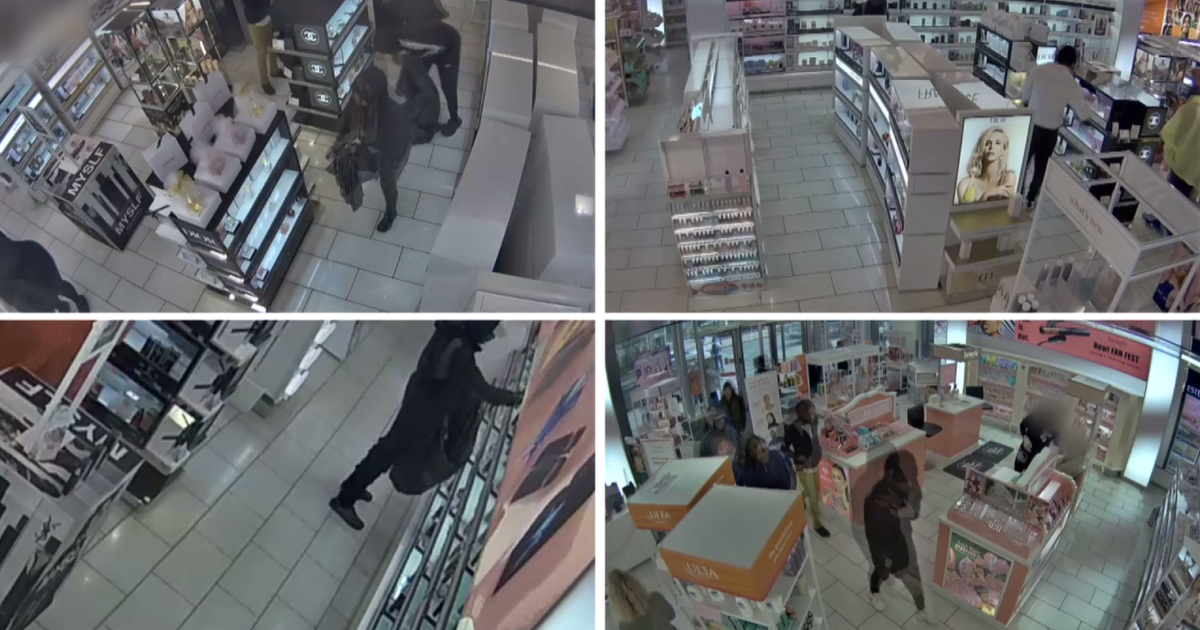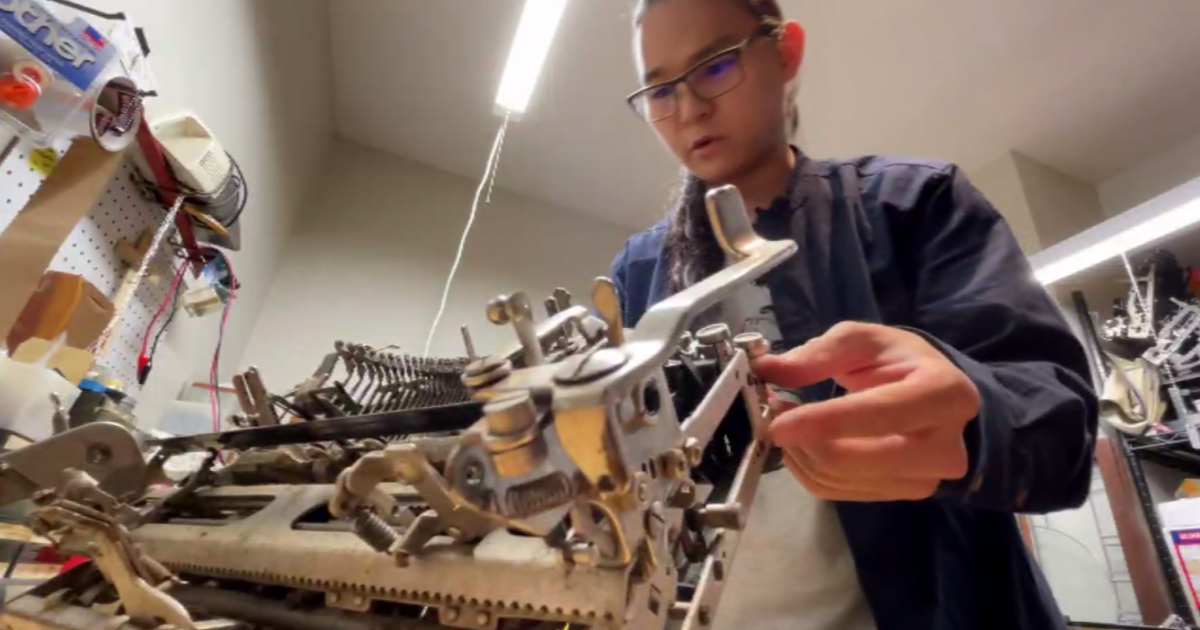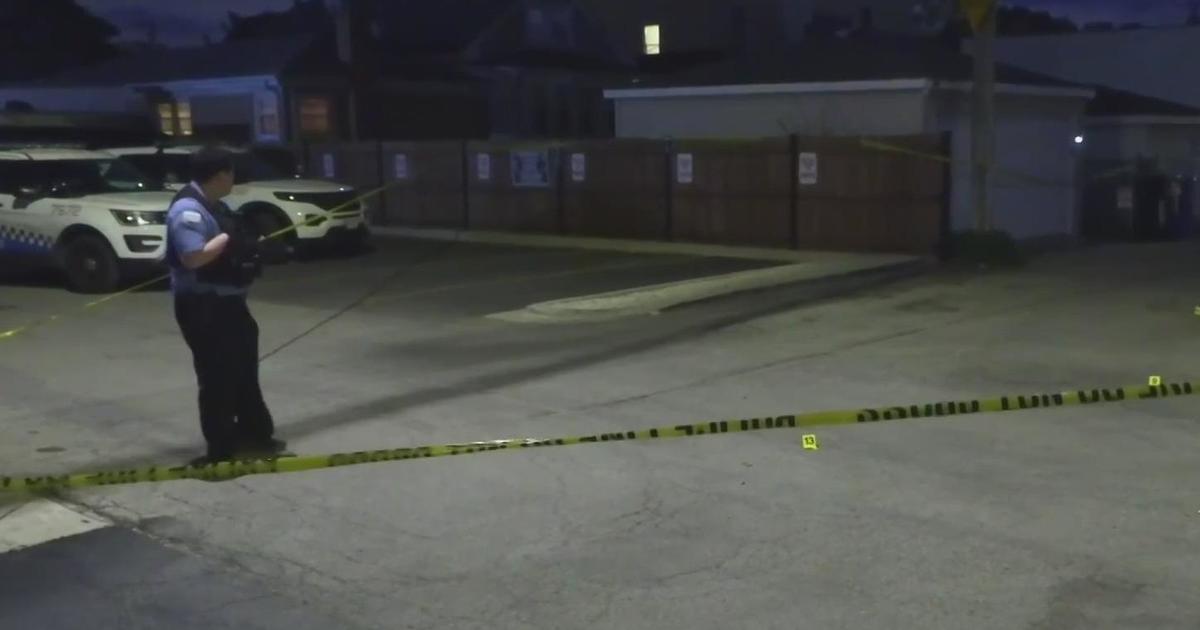Black Souls Racketeering Trial Opens, Set To Last More Than 2 Months
CHICAGO (CBS) -- A half dozen alleged high-ranking members of the Black Souls street gang sat shoulder-to-shoulder along the courtroom wall Monday, looking across at an over-stuffed jury box at the Leighton Criminal Courthouse.
The view for the six defendants and the jurors won't change until nearly Christmas.
With 10 weeks blocked on Cook County Judge Michael B. McHale's calendar, the racketeering trial — alleging the gang was behind a multimillion-dollar drug business and at least six murders — is setting up to be one of the longest in recent memory at the courthouse.
Addressing the set of 20 jurors and alternates in the courtroom— as a hedge against complications, the group was larger than the usual complement of 12 and two to four alternates— Assistant State's Attorney Erica Dillon outlined a case that would include testimony from multiple former Black Souls, tapes of wiretapped conversations and even recordings of a police informant allegedly killed by the gang.
"These six defendants flooded this area of the West Side with heroin and cocaine," she said. "This gang committed murders over and over and over."
The case was the first— and so far, one of only two— prosecutions in Illinois to use a state Racketeer-Influenced Corrupt Organization laws that were adopted in 2012, based on federal laws that had been used to tackle the mob and drug cartels since the 1960s.
Of the 23 Black Souls originally charged in the case some four years ago, only six alleged high-ranking members remain, with the others reaching plea deals with prosecutors.
In the picture painted by defense lawyers, the six men on trial hardly qualified as modern-day Al Capones sitting at the head of a orderly, business-like drug empire.
Cornel Dawson, the alleged kingpin of the Black Souls, had only a few thousand dollars on him when his apartment was raided by police— an apartment Dawson shared with his mother, said his lawyer, George Becker.
A co-defendant had $910 on him when police raided an apartment he shared with relatives.
"You're gonna hear about drug sales, I'll give you that," Becker said. "But not organized drug sales. Not organized by the Black Souls."
Dillon highlighted a few key points in the case against the Black Souls, leading her opening statement by recounting the murder of Claude Snulligan, who was murdered in 2012 after he pressed battery charges against alleged top Black Souls lieutenant Teron Odum. Duavon "L'il Sap" Spears allegedly crept up behind Snulligan outside a cell phone store and shot Snulligan in the back of the head.
"Claude Snulligan would never set foot in a courtroom to testify against Teron Odum or any member of the Black Souls," Dillon said. "And the Black Souls business enterprise on the West Side of Chicago could go on as usual."
Dillon said recorded conversations among Black Souls members would show the gang had a corporate-seeming organization, where dealers were given sales quotas to meet, and leaders contemplated ways to increase sales and expand markets.
Defense lawyers in turn took swipes at the credibility of a star state's witness, Alex Williams, noting he had received $100,000 in payments from the government as an informant, and that he'd been arrested for selling drugs just weeks ago.
"It wasn't like in 2013, when everybody was getting arrested (Williams) said 'Hey, I'm going to start a new path,'" said Dawn Projansky, a lawyer for defendant Ulysses Polk. "He was selling drugs until a month ago."
(Source: Sun-Times Media Wire © Chicago Sun-Times 2017. All Rights Reserved. This material may not be published, broadcast, rewritten, or redistributed.)



